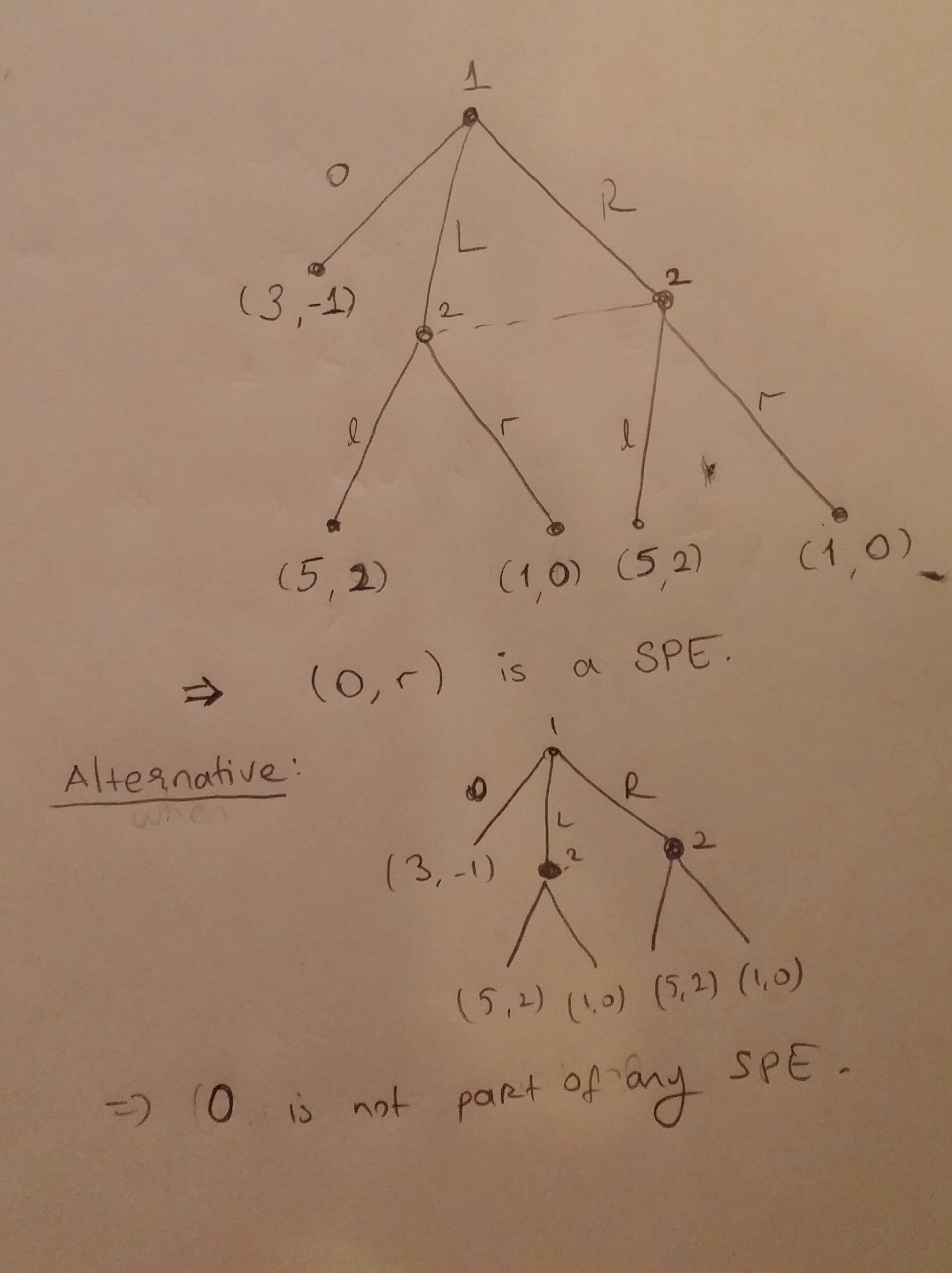Below is a lemma which I believe to be true and which I would like to use to derive other results
Take any two games in extensive form (complete information) $\Gamma$ and $\Gamma'$ differing only through their collections of information sets $\mathcal{H}$ and $\mathcal{H'}$. Suppose that for each decision node $x$ in the set of decisions nodes $\mathcal{X} = \mathcal{X}'$, $H(x)$ is a finer partition of the set of actions $c(x) = c'(x)$ than $H'(x)$.
Then for ever subgame perfect equilibrium outcome of $\Gamma$, there exists a subgame perfect equilibrium of $\Gamma'$ with the same outcome (but the converse does not need to be true).
I could try to write a complete proof but this seems to be basic enough a statement and I don't want to re-invent the wheel (or fail to pay tribute to former proofs). So my question is:
- Do you know of any reference where that result is proven (or maybe disproven in case I got something wrong)?
Edit : I am only interested in pure strategies equilibria.
